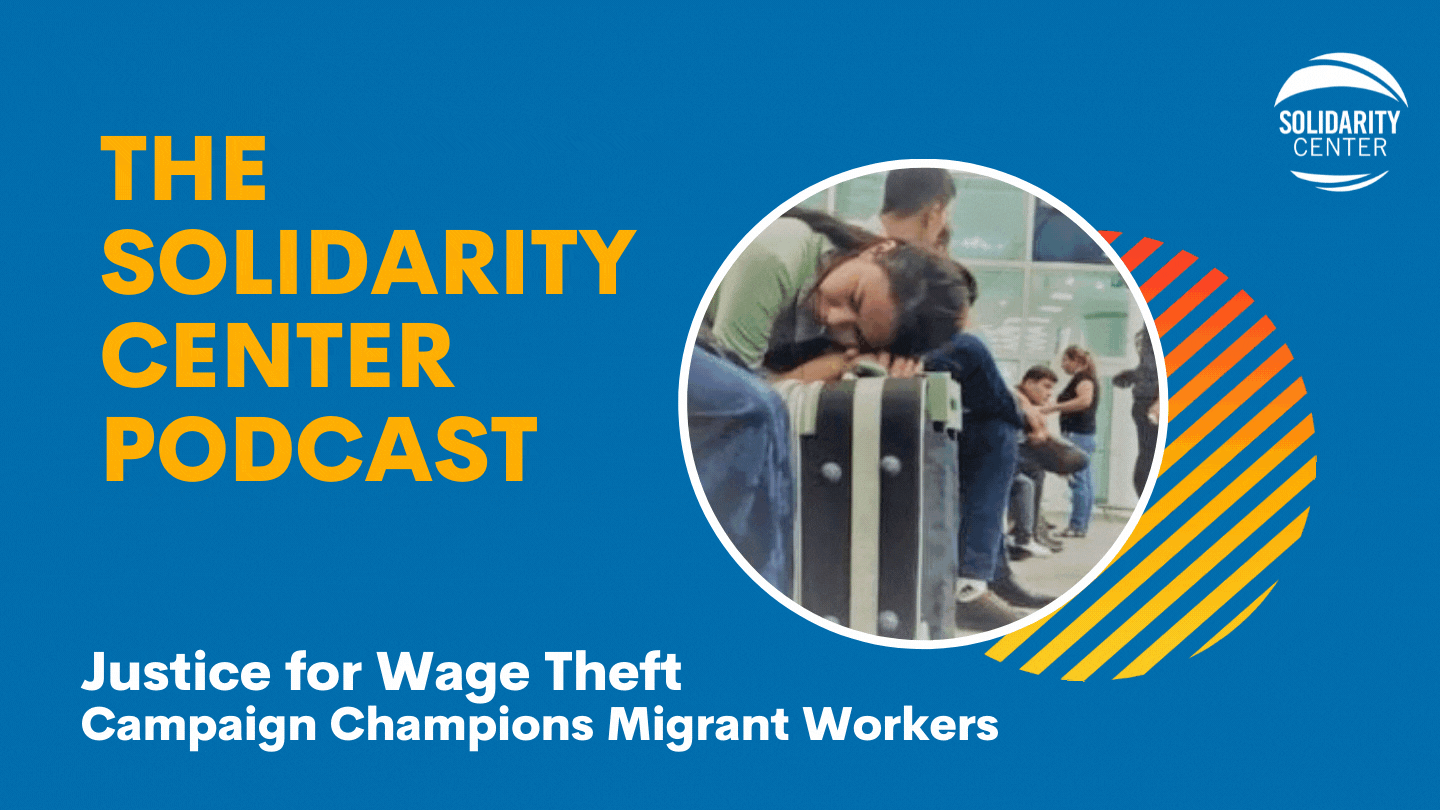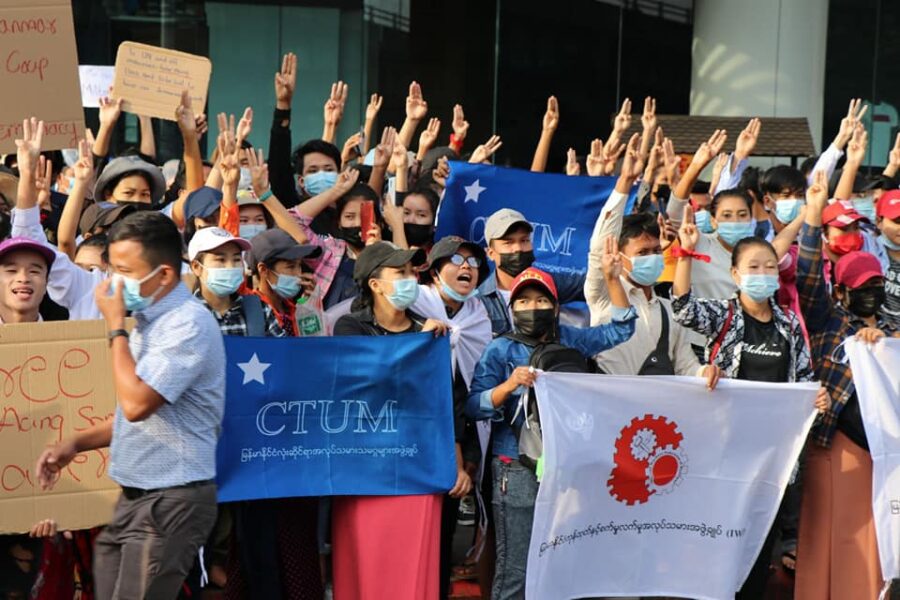Millions of migrant workers trapped in pandemic lockdowns were forced to leave their employers and return home—bearing all the costs even as they often were unpaid for the work they had performed, says Michael Joachim, co-founder and director of the Plantation Rural...
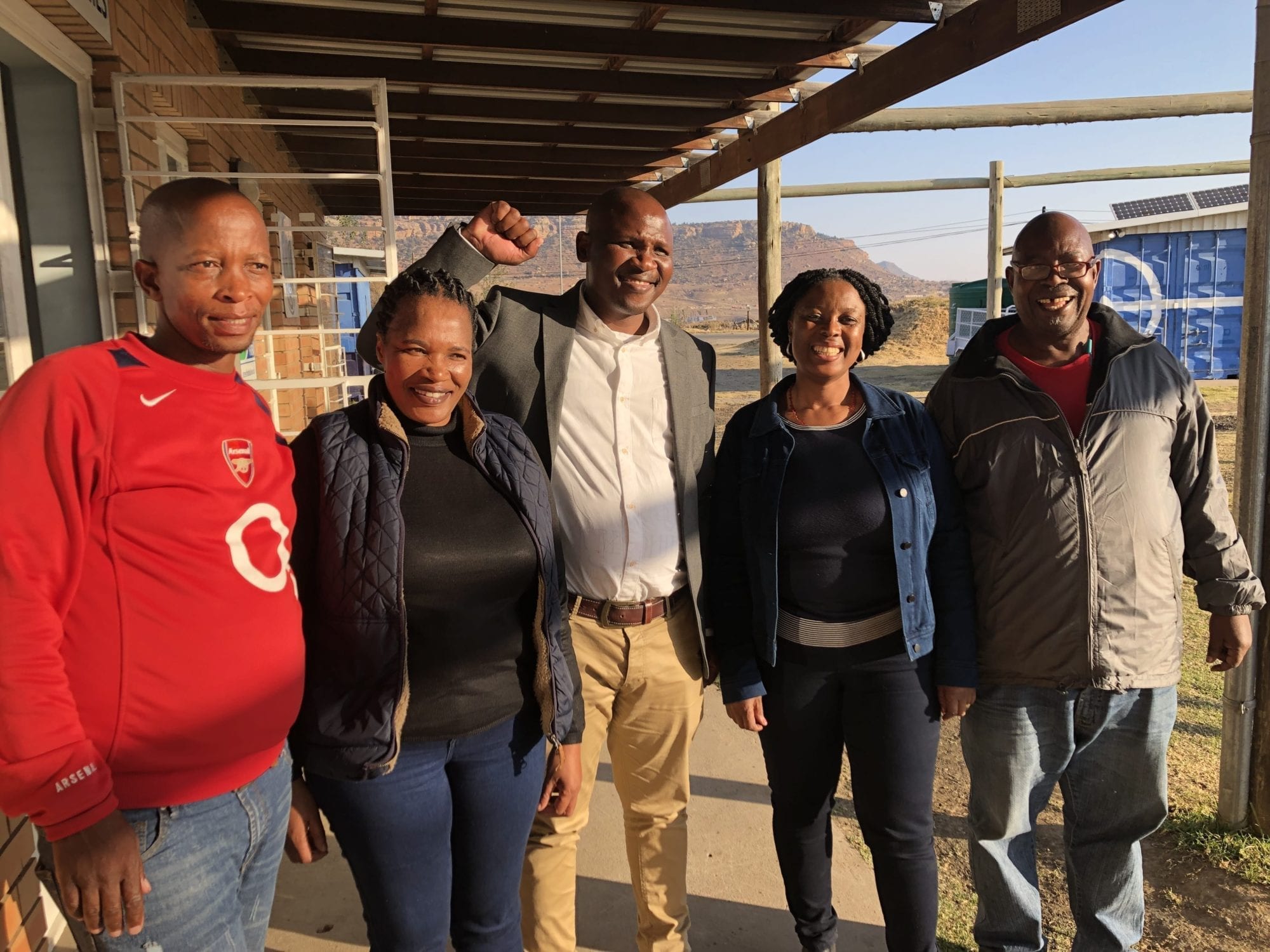
Garment worker leaders in Lesotho celebrate a new contract that moves toward a dignified, decent future of work. Credit: Solidarity Center/Shawna Bader-Blau
The future of work must be shaped by the women and men who are essential to the work process, who build our houses, sew our garments and design our computers. That is why the future of work must be rooted in democracy, the ability of all workers to freely form unions and collectively bargain to assert their fundamental rights in shaping workplaces that are fair, democratic and humane.
The Solidarity Center is advancing a worker-centered future of work through programs that encompass the voices of the Global South, put people before profits and confront the long exclusion of the most marginalized workers, including migrant workers, informal economy workers and women, especially in global supply chains such as the textile industry.
For instance, the Solidarity Center partnered with Lesotho-based unions and women’s rights groups, major fashion brands and international worker rights organizations to negotiate a landmark agreement with factory owner Nien Hsing Textiles that will address the rampant gender-based violence and harassment denying thousands of women garment workers a safe and dignified workplace in Lesotho.
Importantly, the agreement includes the freedom to form unions and collectively bargain, and is worker designed, with workers as full participants, equal in crafting and implementing the future they envision, one that ensures they are treated with dignity and fairness.
Summit for Democracy: Workers Organizations’ Vital Role
Democracy enables workers and their unions to flourish, and as it is increasingly threatened around the world, democracy also depends on working people and their organizations to keep it vibrant, according to speakers at the high-level event, “Worker Organizations'...
Essential Workers Summit: Building a Just Future for All
Workers who risked their health to provide essential services during the pandemic joined with actors, global union leaders and policymakers in a first-of-its-kind worldwide gathering to share their experiences and demand a response that urgently and effectively...
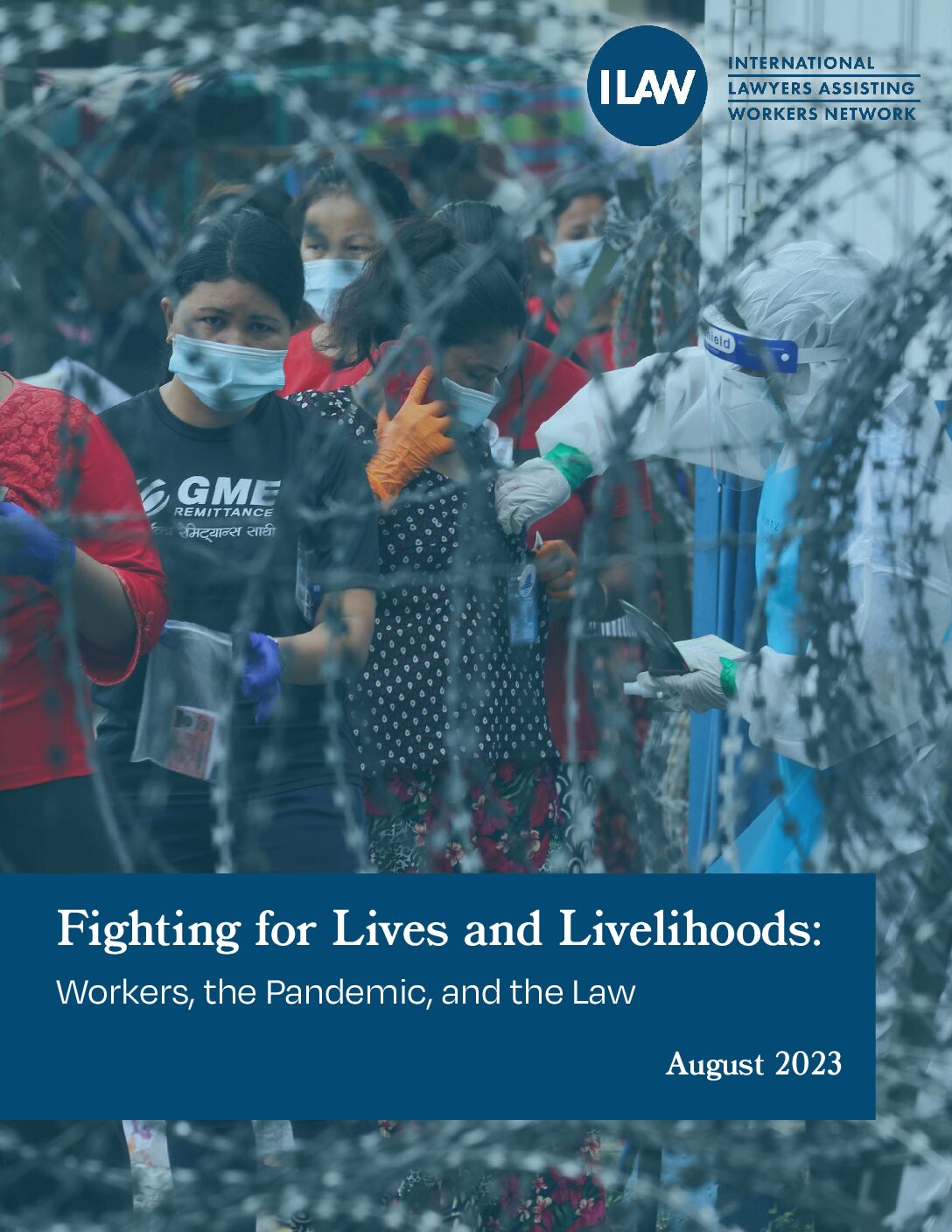
Fighting for Lives and Livelihoods: Workers, the Pandemic and the Law
It has been widely reported that when the COVID-19 pandemic began, governments and employers were ill-informed, ill-prepared and in many cases willing to risk the lives of workers for profits-leading to occupational health and safety failures globally. This issue...
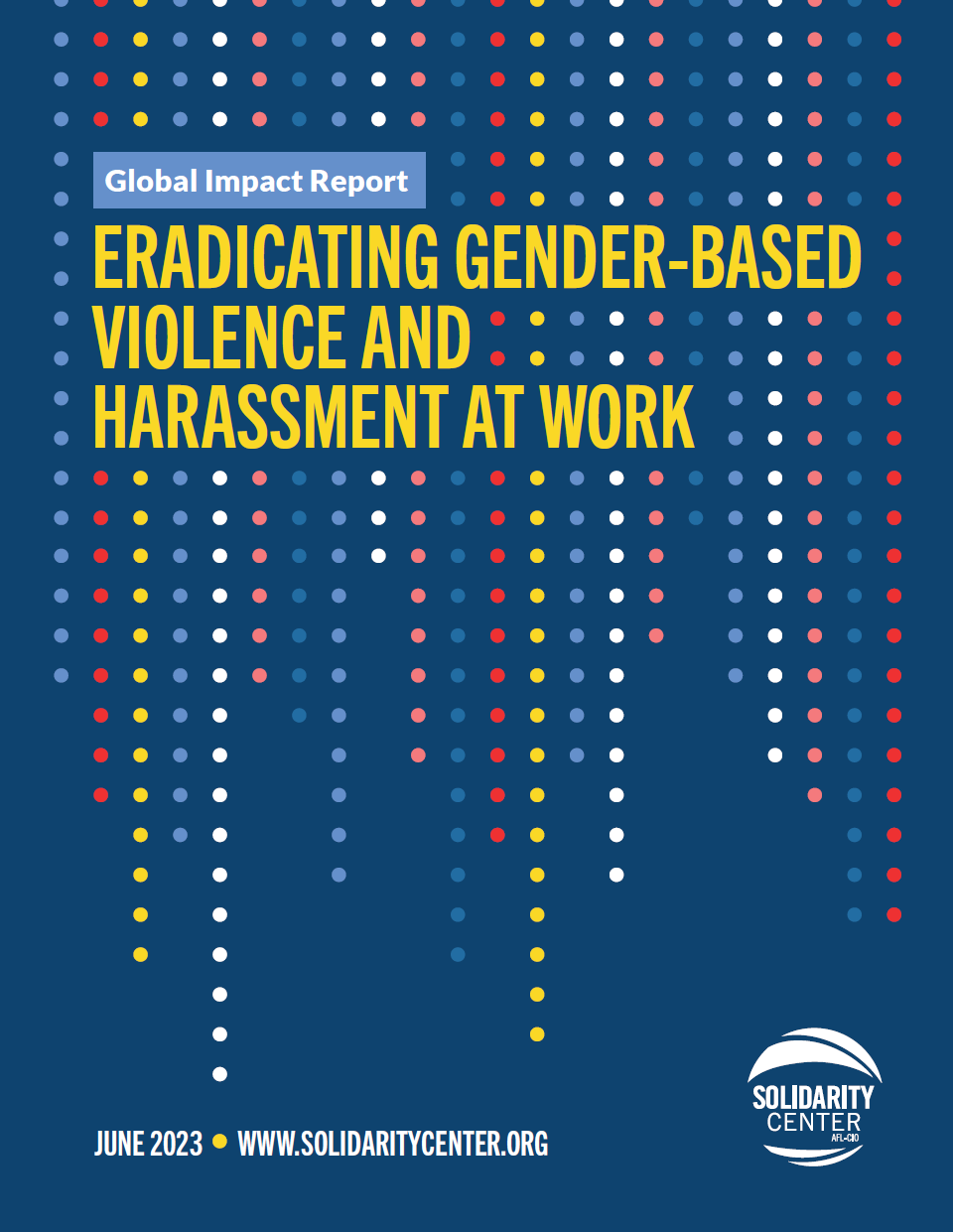
Global Impact report: Eradicating Gender-Based Violence and Harassment at Work
The Solidarity Center Global Impact report highlights the Solidarity Center's support of unions and civil society organizations in ending gender-based violence (GBVH) at work and showcases key outcomes, including a landmark agreement to address GBVH in Lesotho garment...
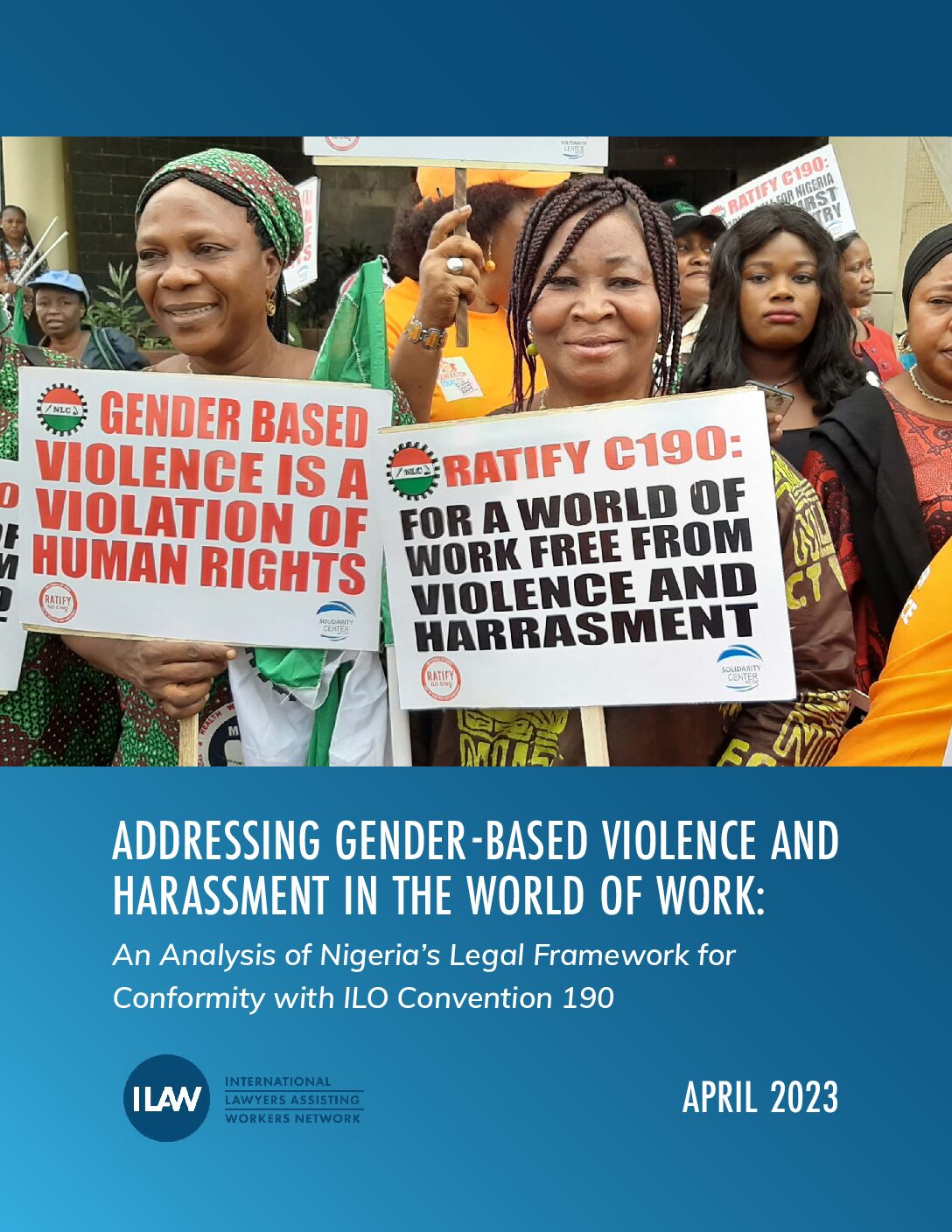
ADDRESSING GENDER-BASED VIOLENCE AND HARASSMENT IN THE WORLD OF WORK: An Analysis of Nigeria’s Legal Framework for Conformity with ILO Convention 190
The report outlines the current legal framework in Nigeria regarding violence and harassment at work; examines key provisions of C190 and how to amend laws to fully realize these protections; and identifies opportunities for legal practitioners to utilize existing...
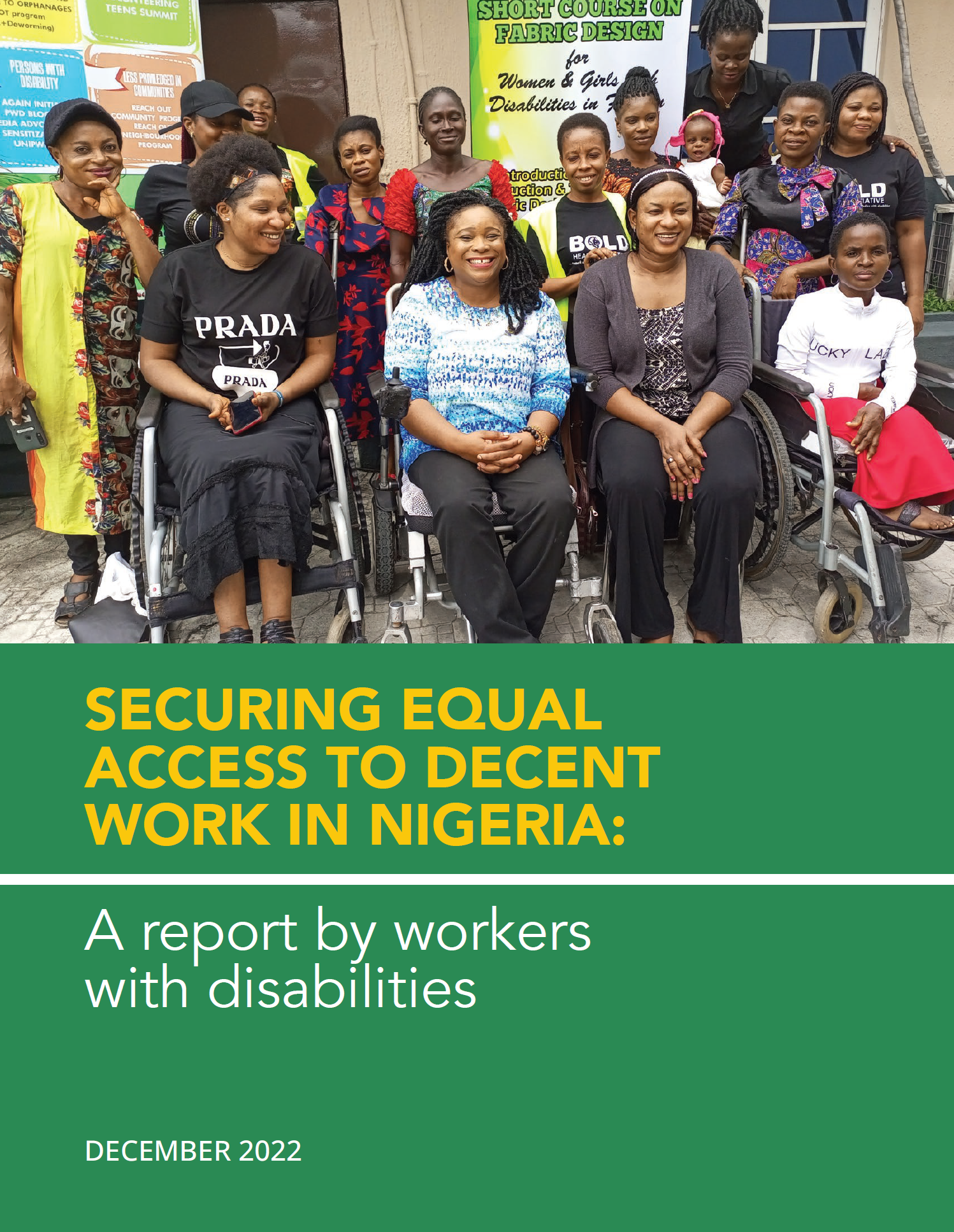
Securing Equal Access to Decent Work in Nigeria: A Report by Workers with Disabilities
A survey of more than 600 workers with disabilities in Nigeria conducted by the Trade Union Congress of Nigeria (TUC) Women Commission and the Solidarity Center in collaboration with Nigerian unions and disability rights organizations, finds that most workers...
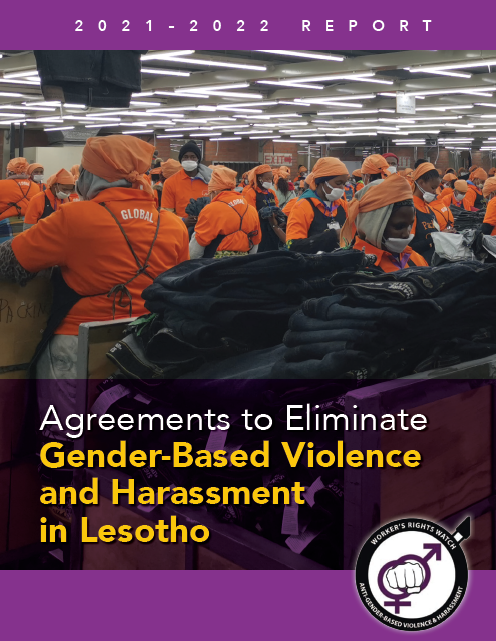
2021–2022 Agreements to Eliminate Gender-Based Violence and Harassment in Lesotho
A report by Workers’ Rights Watch tracks progress on a precedent-setting, worker-centered program in Lesotho garment factories to prevent gender-based violence and harassment (GBVH) of garment workers producing jeans for the global market. The Lesotho Agreements...
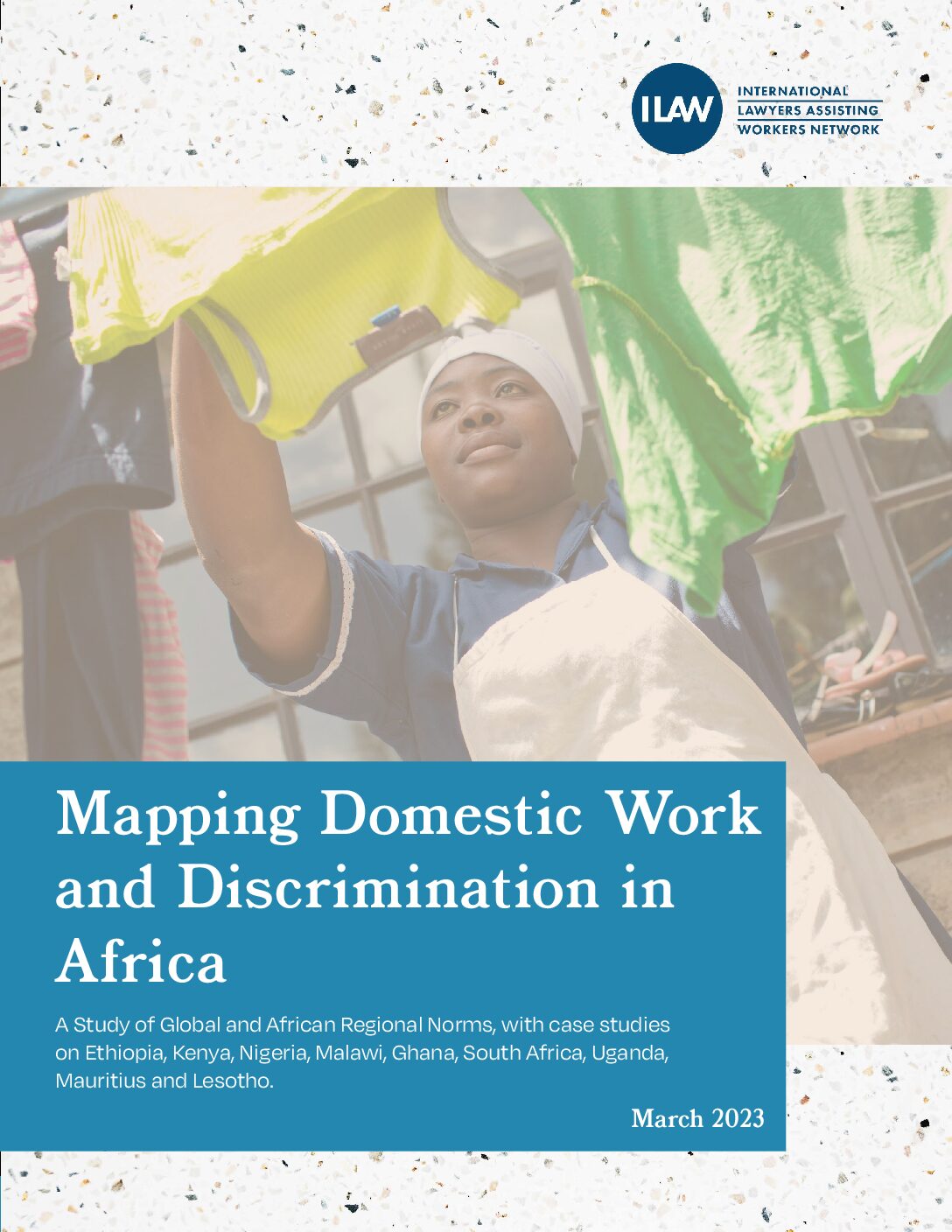
Mapping Domestic Work and Discrimination in Africa
This report looks at the domestic, regional and international legal frameworks regulating domestic work in nine countries: Ethiopia, Ghana, Kenya, Lesotho, Malawi, Mauritius, Nigeria, South Africa and Uganda. Download it here.


